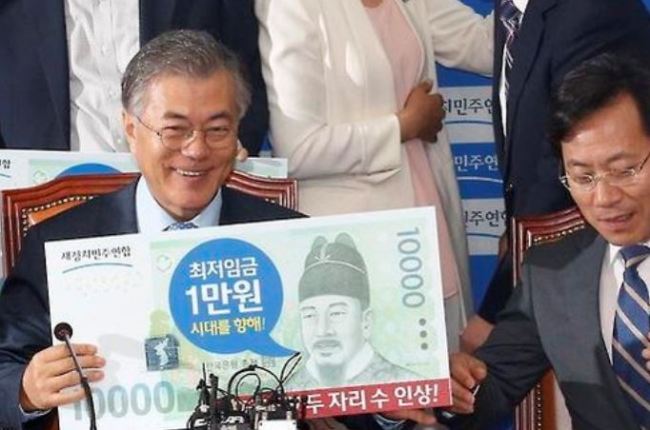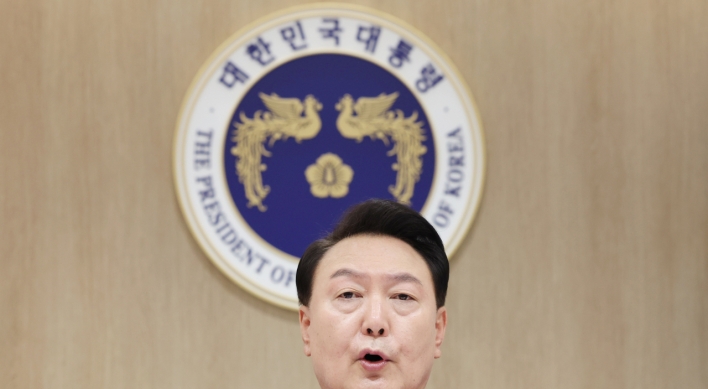Business community argues against govt. logic on minimum wage
By YonhapPublished : Jan. 22, 2018 - 09:53
The local business community on Monday continued to strongly dispute the government's argument that the raised minimum wage will eventually help the economy, dismissing such reasoning as outdated.
Finance Minister Kim Dong-yeon on Jan. 11 cited results of the minimum wage increases that took place in 2000 and 2007, when the job market was affected by higher hiring costs in the short run but stabilized after just a few months. His deputy, Koh Hyeong-gwon, on the same day at a different government meeting said that in both years, the ripple effect on inflation was limited.
The government hiked minimum wage by 16.4 percent, to 7,530 won ($7.04), as of Jan. 1 this year, aiming to put more money into the pockets of ordinary workers and encourage spending. It is also pushing employers to hire more workers on a permanent basis rather than on temporary contracts, so that the workers will have stable jobs.
Comparisons have often been drawn with 2000, when minimum wage was increased 16.6 percent, and with 2007 when the increase was 12.3 percent.

The business community, however, disagrees with comparing to current situation to those years, when, it says, conditions were very different.
Employers will have to raise wages for some 4.63 million people this year, compared to 1.78 million workers in 2007 and 140,000 in 2000, corporate officials say. This means 23.6 percent of workers are covered under the new minimum wage, compared to 11.9 percent in 2007 and 2.1 percent in 2000, according to the officials.
"On top of that, economic growth this year is 2.9 percent (central bank's estimate), much lower than 8.9 percent in 2000 and 5.5 percent in 2007," one official said. "The repercussions from this year's minimum wage increase on the economy and the job market are too heavy for comparison with 2000."
The agriculture and livestock sectors say they are among the hardest hit from the higher pay. With young people leaving for city jobs and shunning laborious work, farmers have long relied on foreign workers. These workers are paid extra stipends for lodgings and meals, which compounds the burden from higher minimum wage, according to a report written in August last year by the Korea Rural Economic Institute.
The report lists complaints from the farming community about the higher minimum wage, which indicated difficulties that often are chronic.
"Manpower supply is very hard and profitability is very low in the current agricultural business structure. Chances are low that increasing the minimum pay will increase productivity," one farmer was cited as saying. "Getting local manpower is limited, so a high proportion of the workforce is filled with foreigners. They are already demanding more pay from the increase in minimum wage."
According to Kim Hong-gil, head of the Hanwoo Association, a farmer hired one worker per every 100 heads of cattle. Kim, whose association represents farmers of cattle native to Korea, claimed that the minimum wage hike increased the average pay for each worker by about 200,000 won.
"Livestock farmers are already suffering from free trade agreements and fallen sales from the anti-corruption law," Kim said. "Now, there is the hiring cost increase. It has become hard to be able to handle the management costs." (Yonhap)




















